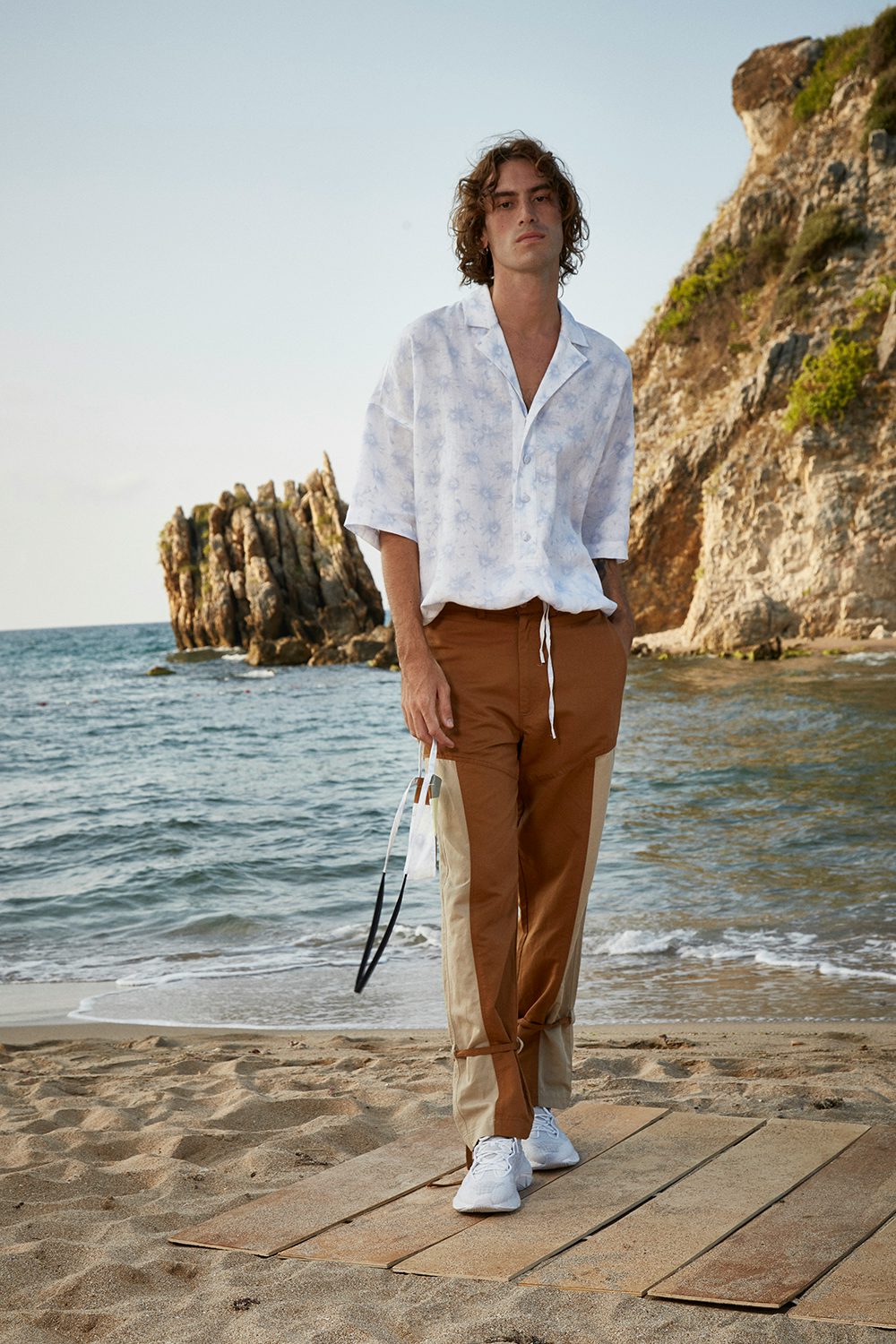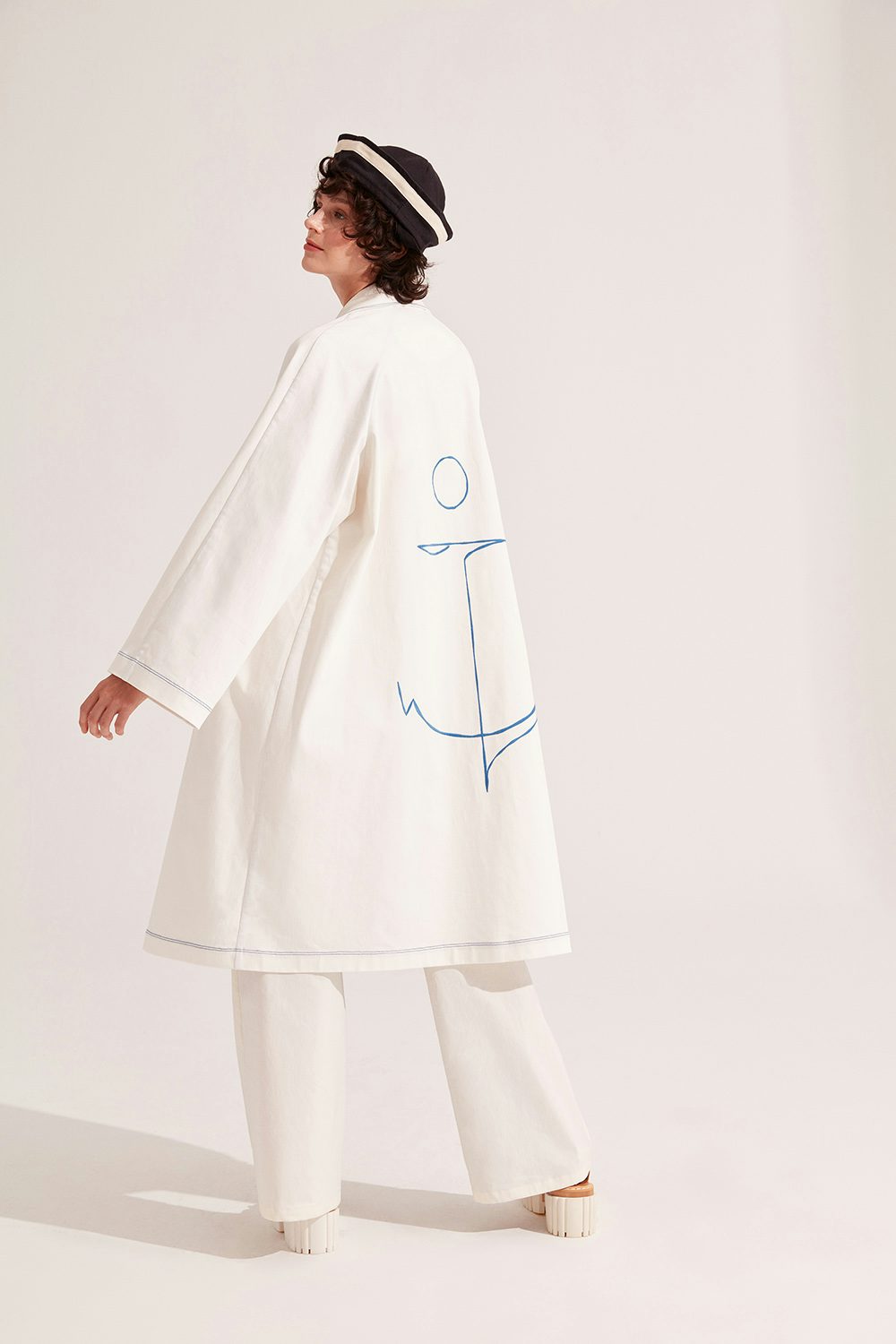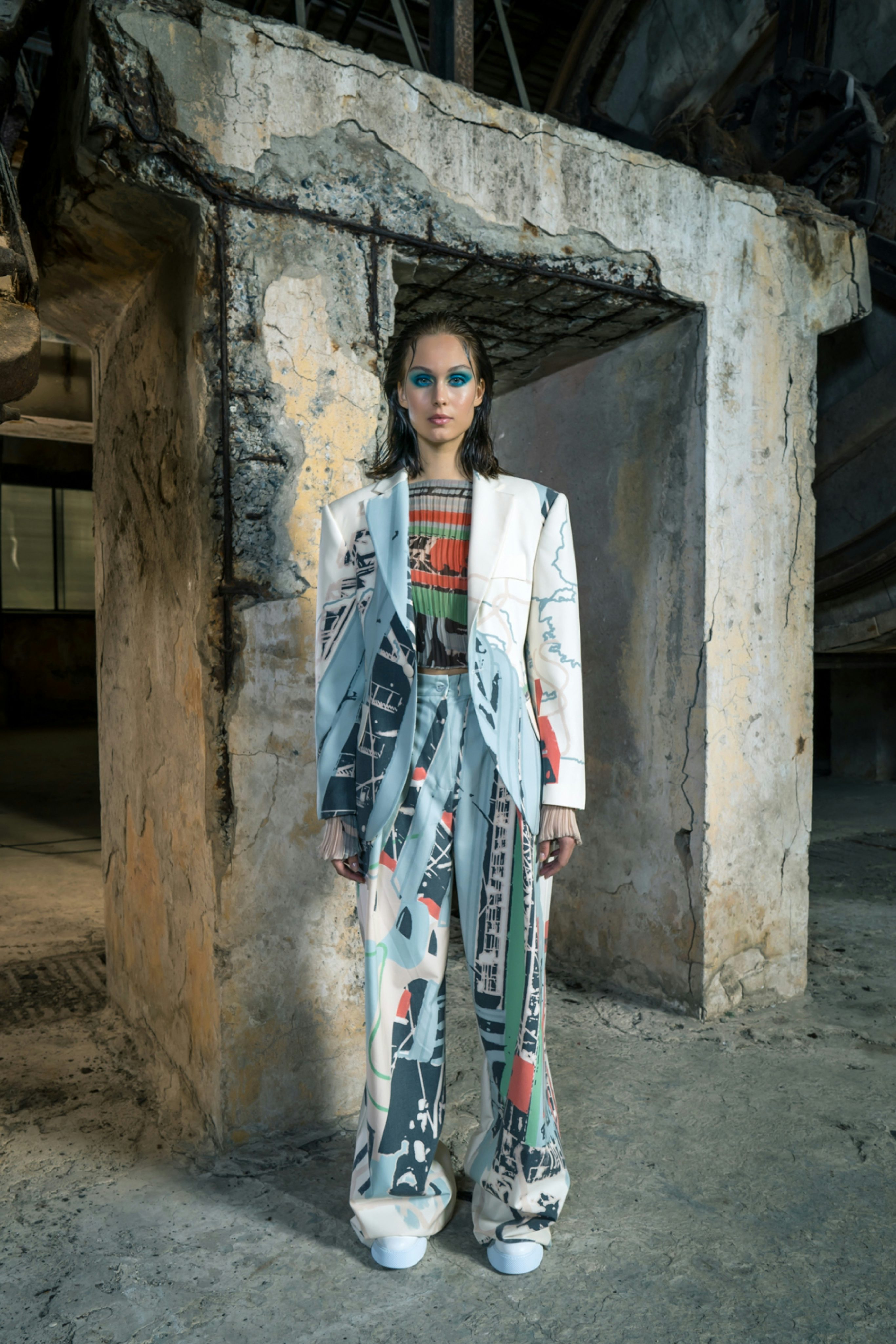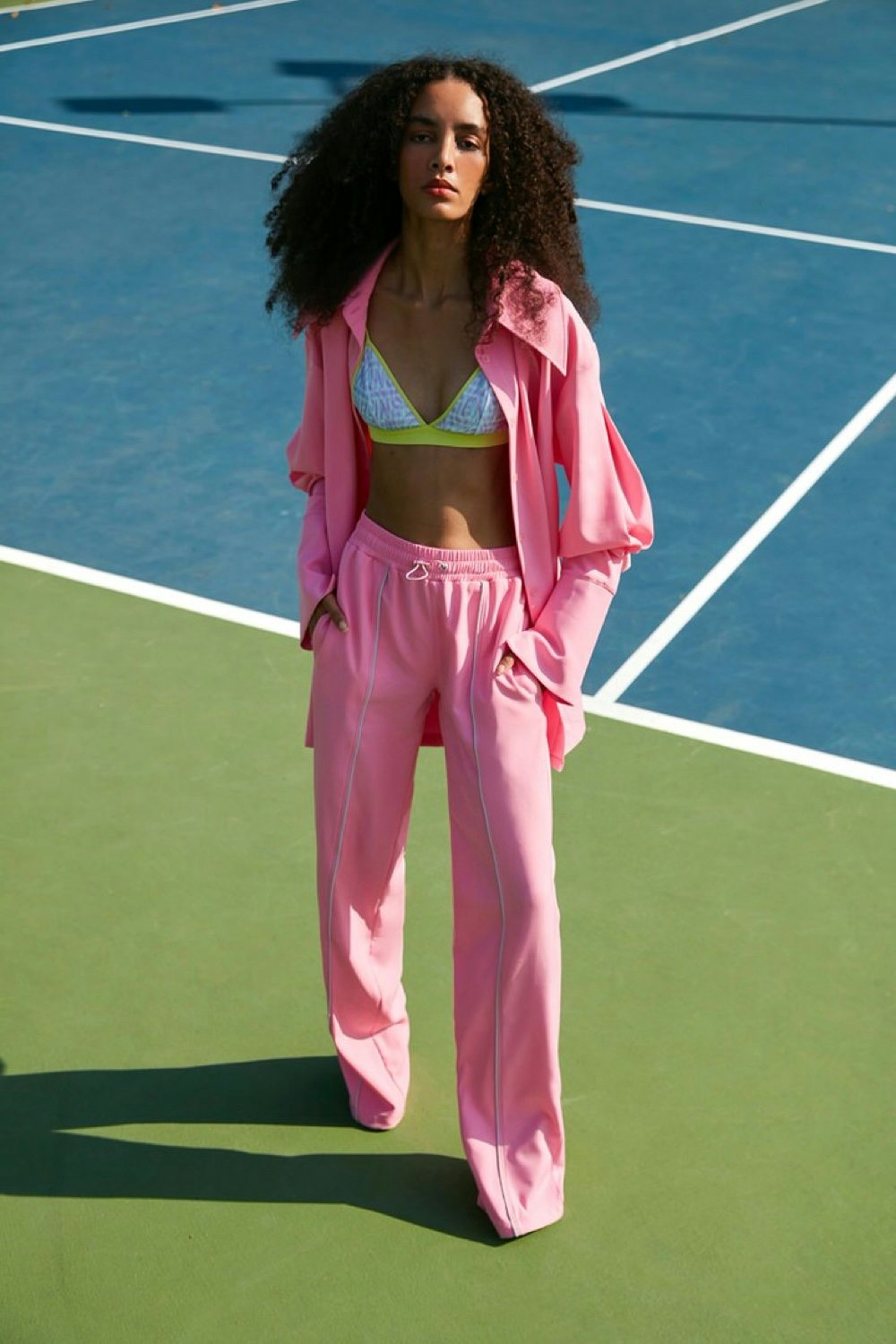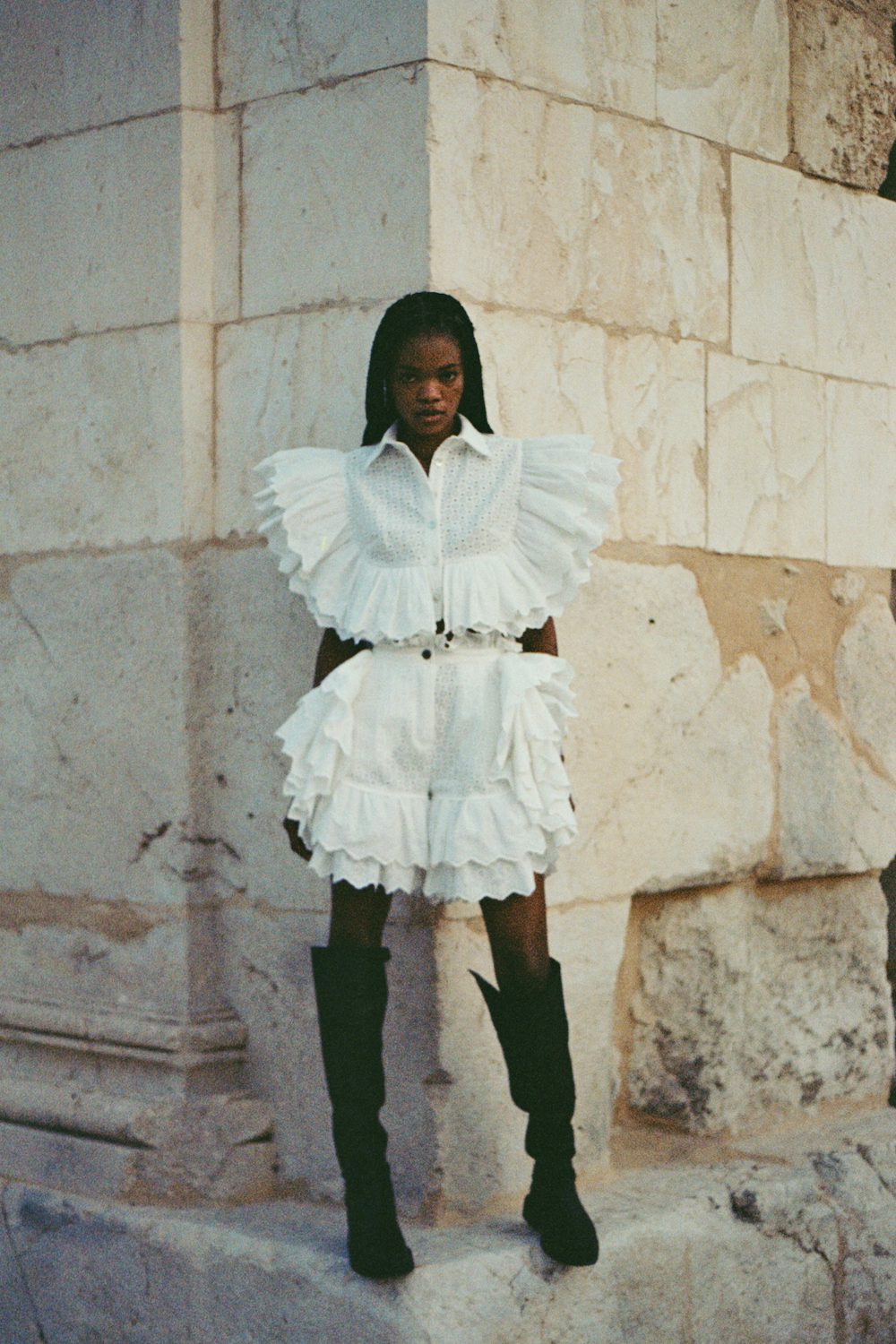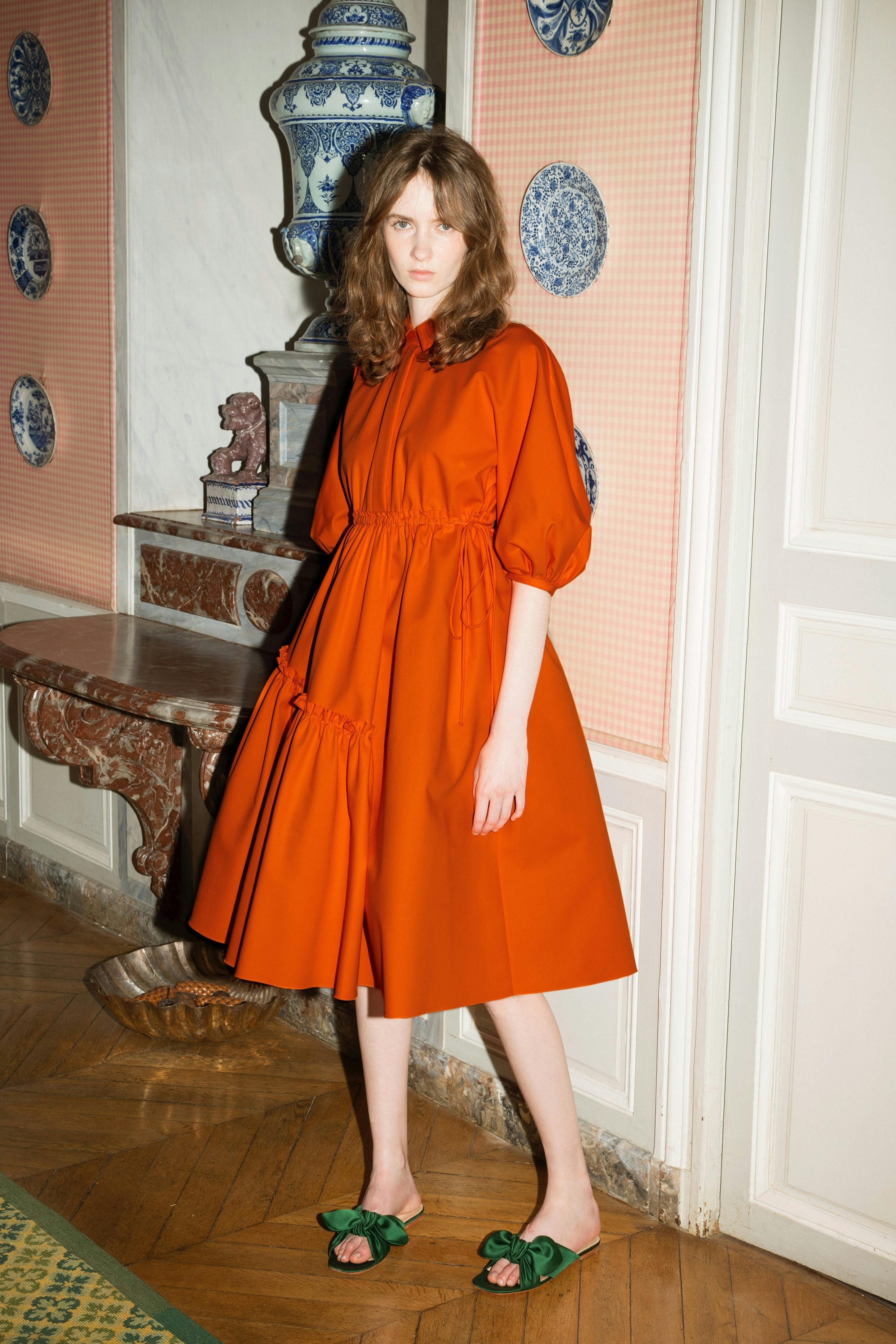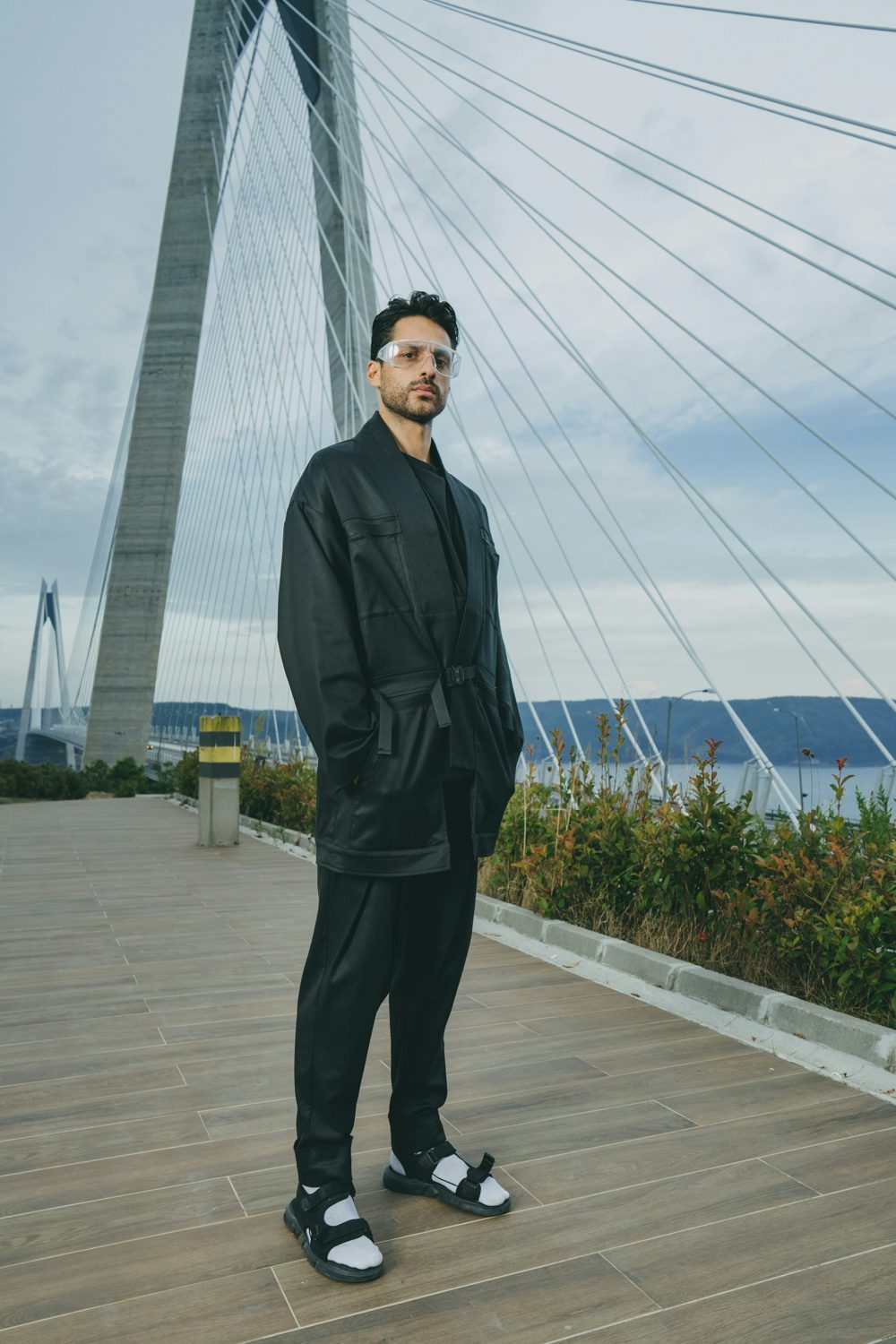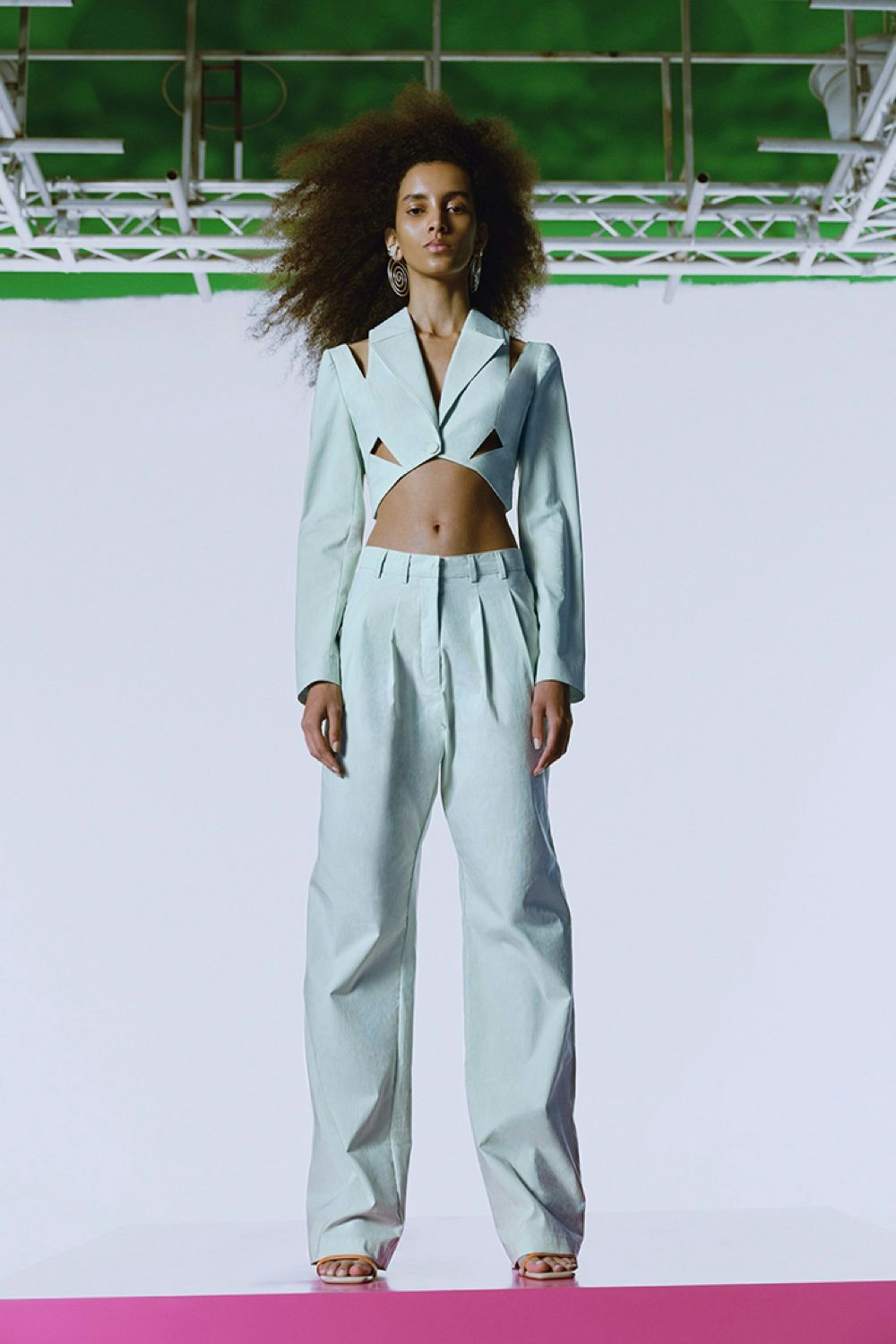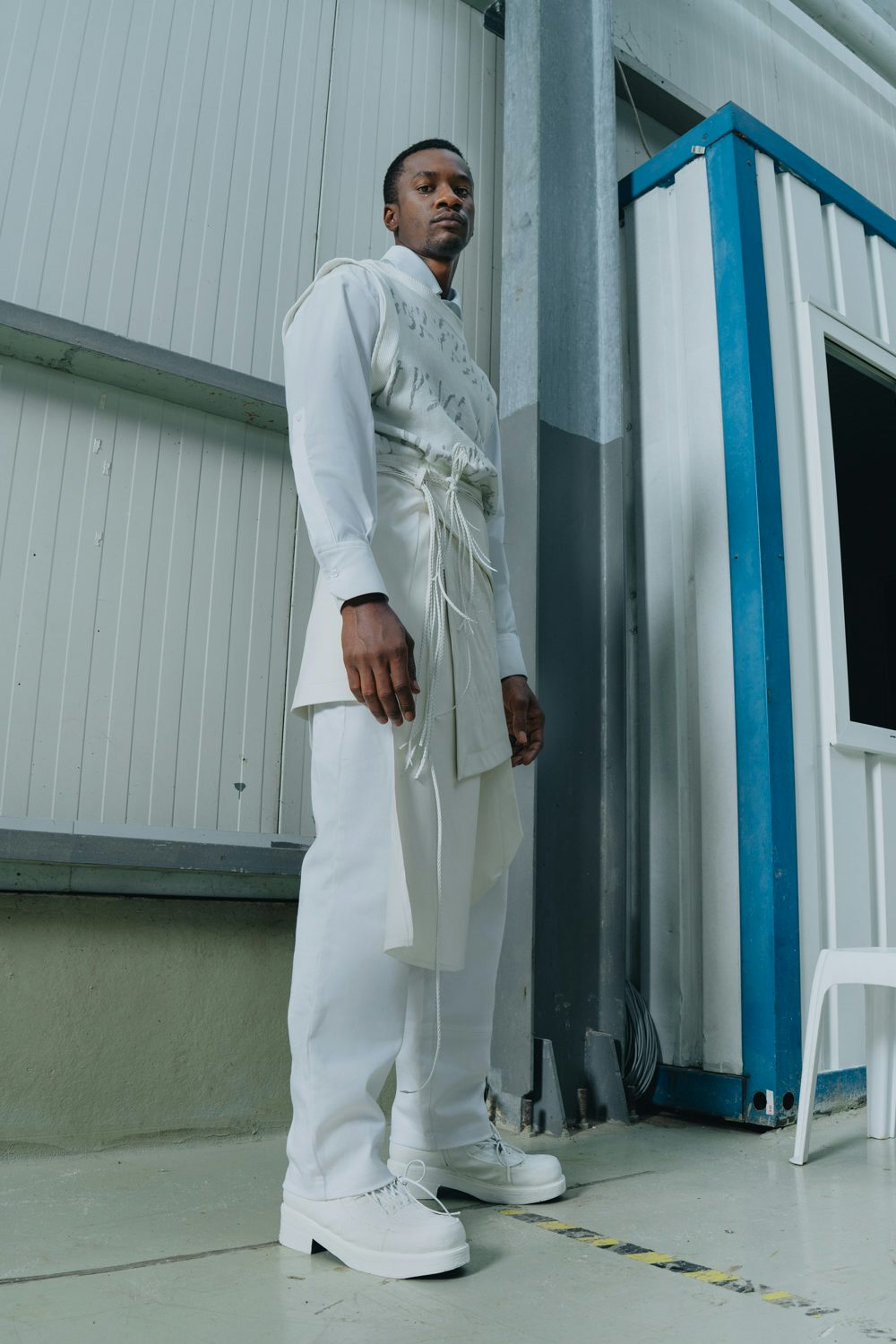Fashion Week Istanbul: A Creative State of Mind | Sponsored Feature
For its latest season, Fashion Week Istanbul returns with a hybrid creative showcase of Turkish talent from October 12 to 17, 2021. A curated experience running between October 13 to 17 mixes the work of Turkey’s artists, from photographers and designers to performance artists and actors, conceptualised across two performance spaces: the public and private.
The multidisciplinary exhibition revolves around the theme Istanbul State of Mind, through which event organisers — Istanbul Apparel Exporters Association, or İHKİB, Turkish Fashion Designers’ Association (MTD) and Istanbul Fashion Academy (IMA) — sought to celebrate the multicultural city and its art scene, united as the world moves into a post-pandemic reality.
The immersive experience engages viewers in performances by artists dressed in Turkish designs, interacting directly with scenes unfolding around them in street settings to private apartments. For those unable to experience the events in-person, the majority of fashion shows within the curation were also digitally streamed between 12 to 15 October and can be watched on the Fashion Week Istanbul’s homepage.
To complement the hybrid event of Turkish talent, London-based filmmaker and ShowStudio alumna, Marie Schuller, also shot and directed a short feature film, streamed between October 12 to 15. Wearing garments from showcasing designers’ collections, actors move from the streets into apartments to parallel the exhibition’s focus on public and private spaces. You can watch the video below.
Now, BoF sits down with 10 of Turkey’s leading and emerging design talent to learn more about the hybrid event, their digital offering and hopes for a post-pandemic era.
Arzu Kaprol
Arzu Kaprol SS22. FWI.
A founding member of Fashion Designers Association Turkey that created Fashion Week Istanbul, Kaprol launched her eponymous brand in 1998. The brand opened its first store in 2007 and has shown at Paris Fashion Week on the official calendar. Since their first digital show in 2015, Arzu Kaprol has leveraged VR and hologram technology, and created “smart” jackets responding to climate changes.
“We are approaching a new state of mind after the pandemic, which is more inclusive than exclusive. We are welcoming a new, responsible attitude. With this mindset, we looked into our local resources [and] created a collection with Turkish artisans using traditional techniques. We stopped importing materials and created a collection supporting hidden and long forgotten traditions of Anatolian culture. […] We created a sub-brand strategy by focusing on specific products like beachwear and kaftans.”
With the pandemic offering a new slate of challenges for designers, Kaprol has placed an emphasis on the “power of collaborations.” Looking to support her contemporaries, the brand now carries other designers’ products in their new store that opened during pandemic.
Selen Akyüz
Selen Akyüz SS22 by Okan Gülderen. FWI.
Selen Akyüz graduated from Istanbul Fashion Academy in 2014 before relocating to Milan to study an MA in menswear design at İstituto Marangoni. After working for menswear brands in Milan, such as Ermenegildo Zegna and Costume National, she returned to Turkey and launched her eponymous menswear brand in 2018 — and released her first womenswear designs this season.
The designer leaned heavily into digital this season, leveraging 3D design and their e-commerce business, as well as the hybridised FWI event. Instead of a runway show this season, “we will be under an atmosphere, where all the other art disciplines company to designer’s collections. It is going to be full of experience for the audience,” Akyüz told BoF, whose SS22 collection will be accompanied by music from electropop duo Lonasona to help “convey the spirit of the collection to the audience.”
She adds: “My future aim is to make my brand one hundred percent sustainable, by using all recycled, all organic-raw materials, to cut the waste of water in the production and support local, small companies to produce the most valuable, durable and qualified fashion garments.”
Mehtap Elaidi
Mehtap Elaidi SS22 by Mehmet Erzincan. FWI.
Designer Mehtap Elaidi moved into fashion to launch her namesake womenswear brand after initially working in marine insurance. Today, at least 60 percent of the brand’s collections use organic or sustainable fabrics and is sold through stores in Istanbul, an e-commerce site and international stockists, including Harvey Nichols.
“We are now designing with the ME woman in mind instead of with/for our wholesale partners. We then look for and connect with retailers that are a good fit for the ME woman in our minds, so that the partnership can be stronger and more sustainable,” Elaidi told BoF. Placing more emphasis on their direct-to-consumer platforms to “directly interact with the ME women” through their website and flagship store in Istanbul, Elaidi said they plan to “go back to hosting different events at our store to offer the ME women.”
The brand is placing a bigger focus on fashion films instead of creating runway shows to reach a wider audience, collaborating with Turkish directors and singer/songwriters for their short films. These collaborative efforts extend to collections, working with women-owned Turkish brands or companies once a year — including this season’s beachwear capsule collection with the Istanbul-based pattern design studio LAR.
Karma by İMA
Essin Barış for the Karma collective. FWI.
The Karma collective represents emerging talent from the Istanbul Moda Academy — a fashion school established in 2007 offering degrees in Fashion Design, Technology and Product Development, Fashion Management and Fashion Communication and Media.
This season, the Karma designers are Essin Baris, Ezgi Karayel and Senem Kula.
As a part of the next generation of design talent coming out of Turkey, Kula has made a commitment to sustainability in their work, having worked with sustainable textiles since 2016. “As a designer, I will continue to work on a different creative field of sustainability each time in my work,” said Kula. “Istanbul Fashion Week is a path that many designers have dug since its first day. Now I’m walking this path too, and I hope I will continue to dig new paths for the designers who will come after me.”
SBNM
SBNM by Şebnem Günay, SS21. FWI.
Founded in 2016 by designer Şebnem Günay, SBNM offers athleisure collections with a retro streetwear aesthetic for women and children, sold direct-to-consumer through its e-commerce site.
“SBNM started as, and still is, a digital label,” Şebnem Günay told BoF. “First of all, being based online gave us the chance to create a strong image and deliver SBNM worldwide without going through huge productions and unpaid deliveries to stores.”
Alongside working with four PR and digital agencies globally to showcase their work, the brand is using “predictive data analytics to understand customer habits and needs, which is integrated with our website,” says Günay. “As we are still experiencing and adapting to the new era of change, we are planning to concentrate on a more contemporary youth profile. We aim to be a part of this revolution.”
Şansım Adalı, Sudi Etuz
Sudi Etuz by Şansım Adalı, SS22 look. FWI.
Şansım Adalı studied in Brussels before launching Sudi Etuz, which now includes both physical and digital stores. The designer champions a digital-first approach, using for years a virtual reality model, digital artists and AI engineers. Soon, Sudi Etuz will launch an NFT capsule collection.
In their last two seasons, Sudi Etuz has turned “completely digital to keep up with the speed of the world,” designer Şansım Adalı told BoF. “We are imagining the collections with how it’s going to be presented — how we will shoot the film. The collection shapes from the [presentation] idea, then we start making the design process and after, fabric selections.”
This season, influenced by historical and archaeological area Anavarza in Adana, Turkey, the brand has combined ancient mythology with a digital video game aesthetic, shot from the perspective of the main character. “We first make our 3D drawings of the pieces before samples. We have a team of digital artists and AI engineers making virtual characters, garments and AI-educated lip-syncs for our digital humans.”
“For our fashion design branch, as we make our pieces in digital, it gives an ease to see the full outfit before making the sample,” adds Adalı. “Of course, with this, we can mind our carbon footprints as we don’t destroy any fabric for the samples of collections. We’re are also making an NFT capsule collection with our digital garments.”
Ece and Ayse Ege, Dice Kayek
Dice Kayek SS22. FWI.
Sisters Ece and Ayse Ege launched their award-winning brand Dice Kayek in 1992. Based in Paris, the label became part of the Fédération Française de la Couture in 1994. The label counts 90 global stockists, its own e-commerce site and a newly opened Parisian boutique, yet production remains in their Istanbul atelier.
“At the moment, we are heavily investing in retail because we want to reach our customers directly for a change. This is the first time we are focusing on creating a shopping experience unique to our brand,” said the sister founders, who opened their Parisian flagship store a few months before the pandemic hit Europe. Consumers can reserve items online to try on in the boutique, alongside a style consultancy and made-to-measure services.
“As for wholesale, we continue to work on capsule collections that cater to our select partners around the world based on their needs,” including a pop-up store at the Ritz Paris for the holiday season and a Christmas collection in collaboration with French retailer La Redoute.
Having leveraged fashion films to preview collections since 2013, Dice Kayek regularly collaborates with award-winning filmmaker Marie Schuller — who created FWI’s cross-disciplinary film this season. “Thanks to the amplifying power of digital media, now we reach a much broader audience than we ever dreamed of when we first started offering our films online. This has been a great practice for us to find new ways of appealing to the new generation of digital native consumers as well.”
Yakup Biçer, Y Plus
Y Plus by Yakup Biçer SS21. FWI.
With 30 years’ experience as a creative director in Turkey, Yakup Biçer’s genderless label Y PLUS received its international debut at London Fashion Week in February 2020.
“Our brand identity this season plays with colours and patterns while preserving one of its core elements: genderlessness. Being able to express gender neutrality by using colours freely has been the biggest change since the birth of the brand,” Biçer told BoF.
While the designer says the pandemic has “taught us many things,” like leading a slower, more sustainable life, Biçer also cites the importance of “collaboration and cooperation of fashion houses, which we have seen in the recent fashion weeks. […] Collaborating with another brand is among my post-pandemic goals.”
Ceren Ocak
Ceren Ocak SS21. FWI.
After completing a degree in business and fashion design at Istanbul La Salle International Academy, Ceren Ocak joined the design team of Turkish designer Zeki Triko until 2013, when she left to design her own collections. Ocak’s label is available at the brand’s showroom and Turkish clothing store Gizia Gate.
“The fact that collection presentations were not physically realised [during the pandemic] made me lean to digital media more, leveraging social media, digital exhibitions and online sales platforms to meet with buyers,” Ocak told BoF.
“I am looking to the future with hope,” says the designer. “I believe that good days are coming. That was what I wanted to tell in my SS22 collection. A more colourful, more dynamic life. For my brand, I intend to take part in areas where I can physically display my products and show my product quality and craftsmanship more.”
New Gen by İMA
A look by New Gen shortlisted designer Nazlıcan Türker. FWI.
New Gen designers are selected from fashion students and graduates of the leading Turkish fashion school, Istanbul Fashion Academy, funded by Istanbul Apparel Exporters Association İHKİB, to showcase and support up-and-coming young designers.
This year, fashion graduates Lidya Zenginel, Nadin Altıparmak, Şeyma Hamamcı, Nazlıcan Türker, Öykü Ece Uza, Ercan Tenekecioğlu, Mirey Demirci and Berfin Özgür are shortlisted for the New Gen award and opened the season’s showcase.
This is a sponsored feature paid for by FWI as part of a BoF partnership.


